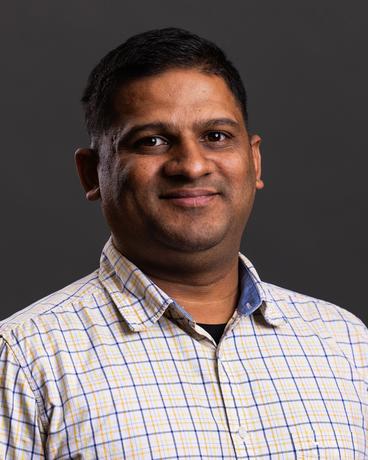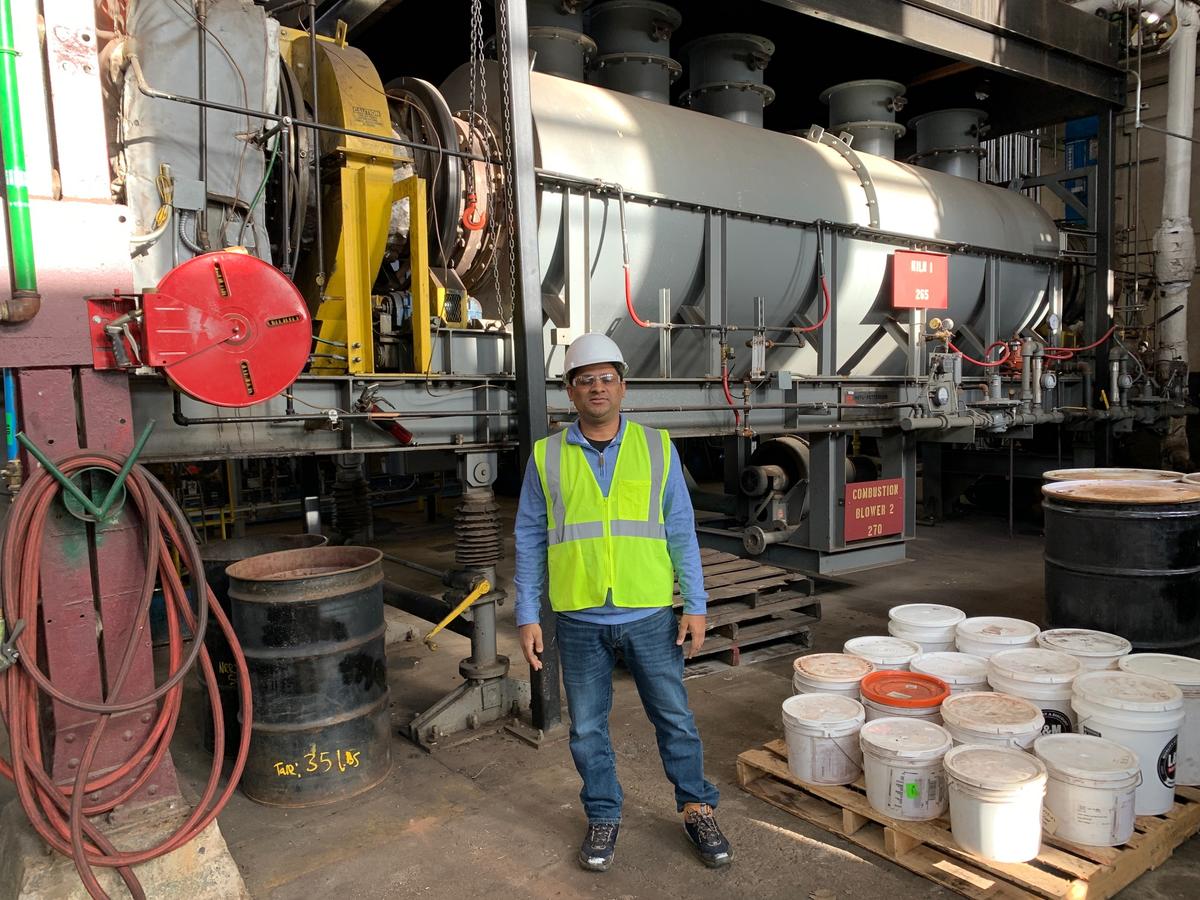When Sunil Tripathy was ready to take his career in India’s steel industry to a new level, NRRI and Minnesota rose to the top of his list.
“Its emphasis on the balance between academic and applied research – and the concept of mine-to-metal, as well as laboratory to pilot-scale – stood out as a key attraction,” said Tripathy. “And I enjoy the customer interactions at the heart of iron ore mining operations. The alignment was an ideal fit for me.”
Tripathy joined the team of mineral processing engineers at NRRI’s Coleraine facilities near Grand Rapids, Minn., in July of 2023. The warm summer weather matched the humid climate of Jamshedpur, India – until it didn’t, come January. “But the work-life balance at NRRI and the community in Grand Rapids made us feel at home in the United States,” he added.

Tripathy brings skills in geometallurgy, dry separation, iron ore beneficiation, and finding value in waste materials, which are especially valuable to the team. He had a long career as a researcher with Tata Steel and received a doctoral degree in Mineral Engineering from the Indian Institute of Technology (Indian School of Mines) Dhanbad, India in 2016. He also completed a postdoctoral fellowship at the University of Lorraine in Nancy, France, in 2021.
“I wanted to expand my research with a vibrant and dynamic team,” Tripathy explained. “At NRRI, we are seeking solutions for different sustainable indicators of mineral processing and metallurgy processes.”
Sustainable Projects
Minnesota’s variety of ferrous and non-ferrous ore deposits intrigues Tripathy as he focuses his research toward mining and minerals sustainability.
He’s currently working on a project with an industry collaborator to replace fossil fuels with engineered biocarbon in the lead battery recycling industry to reduce the carbon emissions footprint. Fossil coal (called coke in this process) is used in the lead smelting process, and Tripathy is working to understand the reducibility of different biocarbon resources to compare with fossil coal.
A second project underway is exploring dry options for minerals processing, to use less – or perhaps no – water in the iron ore flow sheets. He is also focused on water conservation in mining and mineral processing through the recycling of processed water through efficient and economical dewatering.
Tripathy most enjoys the cross-collaborative nature of the research across NRRI’s multi-disciplinary teams.
“I am working with the minerals processing and metallurgy team, which is collaborating with the biocarbon researchers, and soon will expand into geology and materials chemistry groups both at NRRI and UMD,” he said.
Off Hours
While research dominates his work life, he also enjoys browsing technical literature and taking on roles of editor or reviewer for many journals and funding agencies when away from work.
“But I also enjoy playing and watching cricket matches,” added Tripathy, who catches it on Netflix when he can. “I love to watch the winning strategy of the players while playing different formats – Test Matches, One Day Internationals and T-20s."
